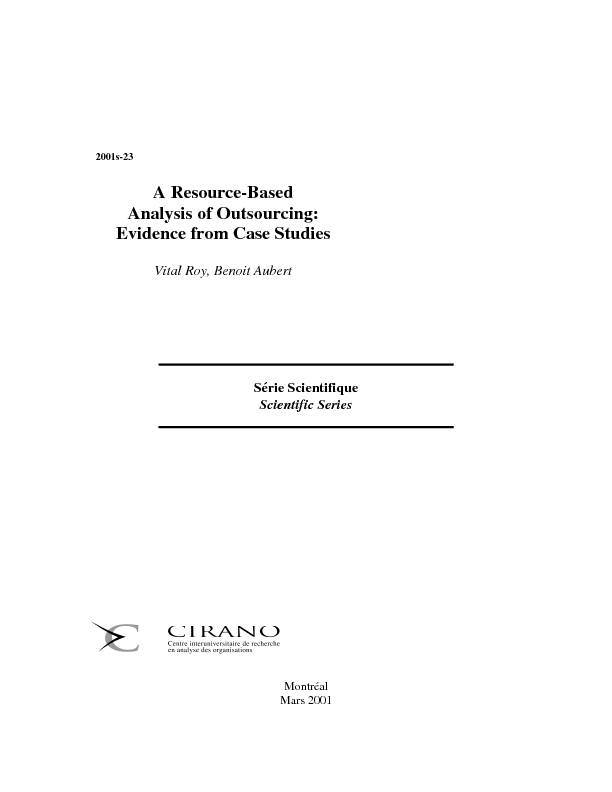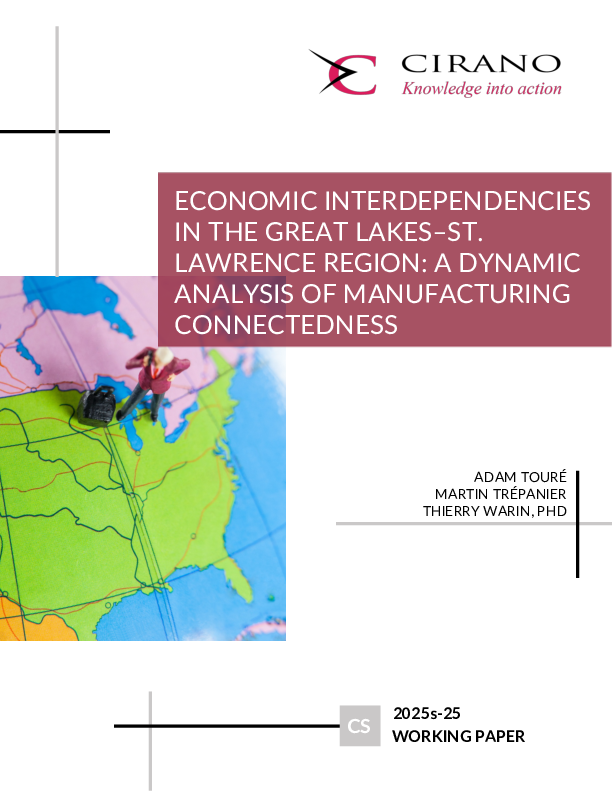A Resource-Based Analysis of Outsourcing: Evidence from Case Studies
The central role that information technology plays in the management of companies, the massive investments that are required, and a preoccupation for rationalization explain in good part the renewed interest in the strategies used for information systems sourcing. In-house provision is often seen as the best way to provide an organization with IT services that are well adapted to support its business activities while preserving its trademark processes and know-how. On the other hand, critics argue that a better solution is to outsource those IT activities to specialists, thus permitting the company to focus on its core business. The choice of a sourcing mode has an impact on the ability of the firm to implement its systems and ultimately to compete in its field of business. In order to better understand under what conditions a firm should choose one sourcing mode over another, we argue that it is necessary to analyze the interactions between a firm's competencies and the strategic value of those competencies. This is investigated using evidence from 21 information system projects. The0501n findings were that the best predictor of success and failure, by far, is the fit between the governance mode and the position of the project in the value/availability matrix. Another interesting finding is that no sourcing mode per se seems to lead to successful outcomes. It is always a matter of selecting the appropriate mode for each situation.
[ - ]




